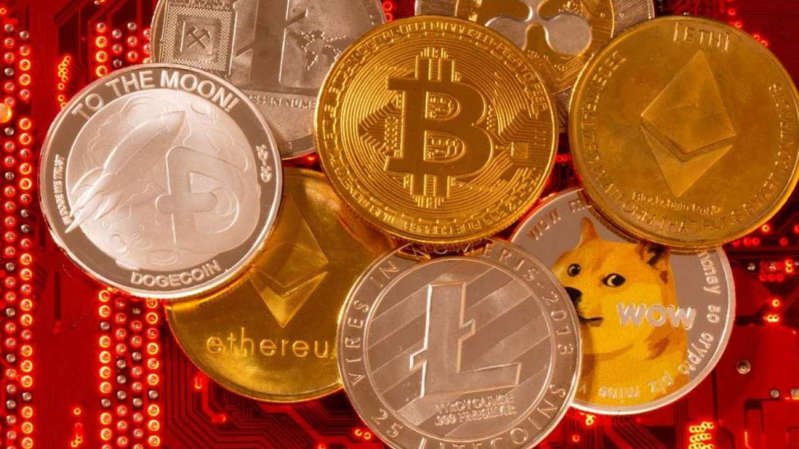Cryptocurrency
Does taxation on Crypto make it legal? Know here

In the Budget, Nirmala Sitharaman announced a 30 per cent tax on earnings from digital currency. The budget also announced that the Reserve Bank of India (RBI) will launch India’s new digital currency this year. Apart from this, several major announcements have also been made for the expansion of digital services in the field of education, health and defence. Banks will also be digitally connected to the post office.
The most talked-about topic of budget 2022 is digital currency and cryptocurrency. The government has imposed a new tax on digital and cryptocurrency. Earnings from the digital currency in India will now be taxed at 30 per cent. This means that if a person now invests Rs 100 in digital currency and gets a profit of Rs 10, then out of this benefit, Rs 3 will have to be paid to the government as tax.
“It is a misnomer to call crypto a currency as it is an instrument. It is an emerging technology and governments around the world are trying to regulate it. Here too, it is not about legal or illegal. The Budget has only made it taxable like any other source of income. The idea is to eliminate a mediator and only keep it as a peer-to-peer transaction,” says Gagan Kumar, a tax expert.
What is the tax formula on Crypto Currency?
On every transaction of digital currency, the government will get 1 per cent TDS separately. If a person has invested in digital currency, then this investment is his property. Now if this person transfers this property to someone else, then he will have to pay a separate TDS at the rate of one per cent on the total cost of that property. TDS means tax deduction at source. That is the tax that is levied on a source. The tax that the government levies on the salary you get every month are TDS. That is, on the whole, the government is considering digital currency as a source of income and 30 per cent of tax has also been imposed on its earnings.
Has the government imposed a tax on digital currency and made it legal?
According to current law, it is difficult to answer this question in ‘yes or no’. In fact, the government is considering only those digital currencies as legal which will be issued by the Reserve Bank of India. This means that cryptocurrencies that currently exist, such as Bitcoin, will not be considered legal currencybut only a digital asset. For instance, if the gold you buy or your home is your property. It’s your property, not your currency. Similarly, cryptocurrency will be an asset for the Indian government and people will be taxed. So if you’re thinking that a digital currency like BitCoin is considered to be legal, it won’t be technically correct. However, people will be able to invest in it.
In countries like the US, The UK, Italy, the Netherlands and Australia, digital currency is taxed in a similar way by the governments there. That is why this currency is considered legal in these countries. Some countries are also considered exceptions to this rule.
“Though the Crypto profits have been taxed at the highest slab without any kind of set-off or carry forward, we see this as a very positive move for the crypto ecosystem in India. We understand that just because something is taxed doesn’t make it legal. Law is very clear on that and there is no doubt. But the reason we are jubilant is the relative change in stance of the government. Even a year before the official stance was tending towards a ban. Now they have decided to tax can even be construed as the first step towards regulation,” Arjun Vijay, Crypto expert.
When will India’s digital currency be launched?
By 2023, the Reserve Bank of India (RBI) will launch its digital currency separately which will be more secure and stable than the rest of the currencies. In simple language, the Reserve Bank of India prints paper currency, in the same way, its sealed digital currency will also come, which will enable people to invest in it. If a person sends the digital currency to another person in a gift, then the person who gets this currency will have to pay 30 percent tax.
Why did the government decide to impose taxes?
A big reason behind this decision of the government could be that the number of people who invest in cryptocurrencies in our country is about 8 per cent of the population. These people are currently betting their Rs 70,000 crore as a digital currency. Indians are at the forefront of using cryptocurrencies all over the world. Simply put, this 30 per cent tax will directly guarantee an investment of Rs 70,000 crore. It can increase its use in India. The government knows that after this decision, people will get incentives to invest in digital currency.
-
Health6 days ago
Is Drinking Cold Water Bad for Your Health? Understand the Benefits and Risks
-
Money2 weeks ago
How to File ITR Online Without a CA in 2025 – Step-by-Step Guide
-
Cryptocurrency3 weeks ago
Why You Should Never Buy Celebrity Memecoins | Crypto Scams Explained
-
Money3 weeks ago
Oswal Pumps IPO: Date, Price, GMP, Allotment & Full Review
-
Beauty1 week ago
Real Reason Behind Dark Underarms: Health Warning Signs, Not Just a Beauty Concern
-
Money5 days ago
Best SIP Mutual Funds 2025: Top 10 High-Return Schemes with up to 27% CAGR
-
Money3 weeks ago
HDB Financial IPO 2025: Dates, Price, Review & Allotment Details
-
How to1 week ago
Transform Your Photos into Stunning Studio-Style AI Portraits with ChatGPT in 3 Simple Steps


























